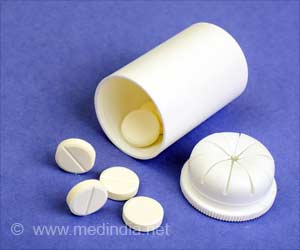Delirium in critically ill patients can be prevented by adminstering a small dosage of dexmedetomidine sedative during the night time.the sedative also improves the sleep quality in patients.

The study was led by Yoanna Skrobik, MD, FRCP(c) MSc, a clinician-scientist at McGill University Health Centre in Canada who conducted the first studies of delirium in the critically ill and whose research has shown that delirium prolongs hospital stay and increases mortality.
"In other studies, dexmedetomidine has been associated with lower delirium prevalence rates than other sedatives," Dr. Skrobik said. "But whether dexmedetomidine might actually prevent delirium was not clear."
The study enrolled 100 ICU patients at two hospitals, one in Quebec, the other in Boston. The patients did not have delirium at the time of ICU enrollment. Half the patients were randomly assigned to receive intravenous dexmedetomidine; the other half were infused with the placebo. Neither the patients nor the ICU health care team knew which arm of the trial the patients were in.
The study found that compared to the placebo arm, those receiving dexmedetomidine during their ICU stay:
- Were more likely to remain free of delirium throughout their ICU stay: 80 percent vs. 54 percent.
- Spent more days free of delirium in the ICU: 8 vs. 6 days.
- Were less likely, if in pain, to experience severe pain: 44 percent vs. 66 percent.
Dr. Skrobik said that the sleep findings should be interpreted in light of two caveats: sleep in the ICU is almost always abnormal, and no validated instrument exists to identify when an ICU patient is experiencing normal vs. abnormal sleep.
Advertisement
"We believe this is a practice-altering study and that dexmedetomidine should be used with patients at high risk for delirium," Dr. Skrobik said.
Advertisement
Source-Eurekalert










